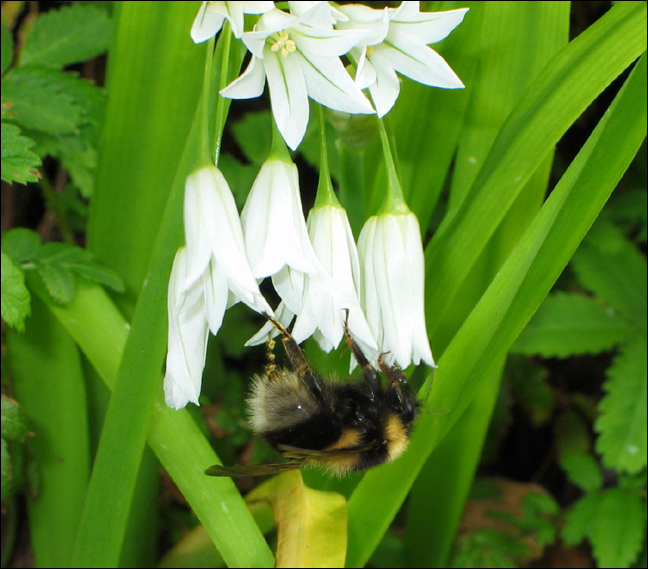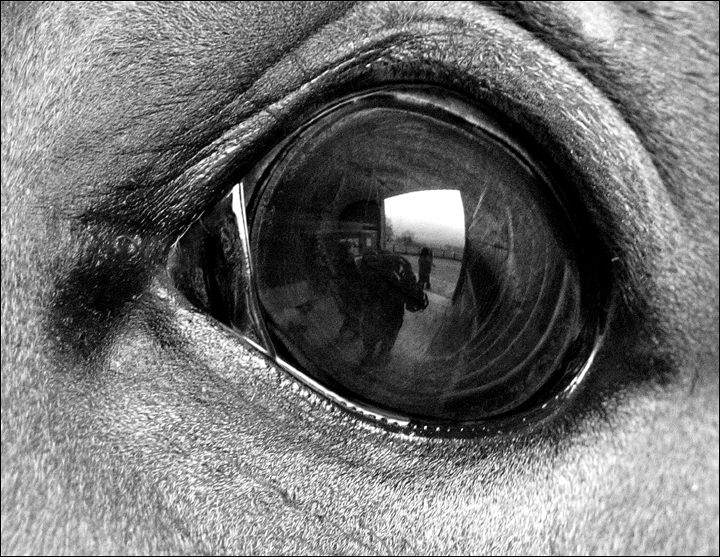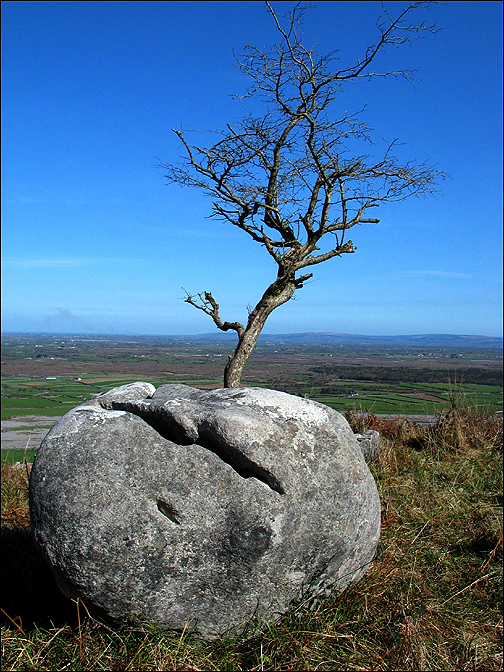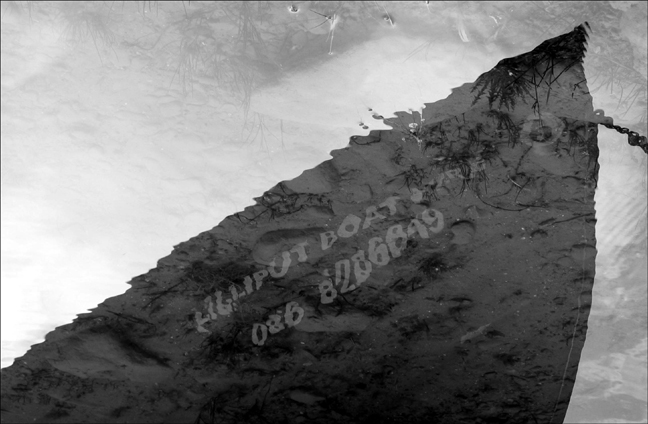April 28, 2005
Paid tha price to be tha boss
Speaking of efforts to revive decades-old infrastructure in the west, attempts by Beverly Cooper Flynn to re-establish herself on the political scene in Mayo (and ensure that the Flynn political dynasty survives another generation) have gone off the rails a bit. Beverly has the dubious distinction as a politician of having the Supreme Court confirm that she couldn't tell right from wrong when she was working as a financial consultant. But she wouldn't be the first Fianna Fáil to spend some time in the wilderness* before making a triumphant return.
The first step is to get re-elected, and to do that, she needs to do the circuit of local cumanna in Mayo, making speeches, pressing the flesh and building up support. The High Command in Dublin were not impressed. Even though the next general election is at least another year away, the last thing they want is an inependent FF candidate competing (or worse, beating) their official one. Last week, a cumann in Ballinrobe that had invited Bev to speak was dissolved, and the members were, ahem, invited to join another cumann in Castlebar. Clearly, the 'defenders of the faith' at headquarters are hoping that Bev will just go away, and that might still happen if she cannot pay her legal bill for her unsuccessful court appeal - bankrupts cannot be elected (I am, of course, only talking about financial bankrupts - I'm sure there will be the usual plentiful supply of moral bankrupts to vote for at the next election).
The name of now deceased cumann is (was) Mícheál Ó Moráin Cumann. He was the Minister for Justice when the Arms Crisis began. The then Taoiseach, Jack Lynch, was informed by the leader of the Opposition that guns were being imported into Dublin to be used by nationalists in Northern Ireland, and that the effort had been organized by elements within the government. Since this happened on Moráin's watch, Lynch fired him and replaced him by Des O'Malley. The minister for Finance eventually was tried and acquitted (his defence - "I know nothing") and spent years in the political wilderness himself before returning in triumph to lead both Fianna Fáil and the country. His name - Charles Haughey. Don't give up on Bev yet.
*No jokes about living in Mayo, ok?
April 27, 2005
To the Spanish Arch

Galway has provided a port of call for sailors since the beginning of recorded history. St. Brendan surely used the city as a base to set up his monasteries along the Corrib's edge in the sixth century. A plaque near the one pictured above claims Columbus visited the city before his epic voyage. If he had, maybe he would have bumped into many other sailors who already knew about the 'new world' - Basque fishermen who disappeared on long voyages west and returned with ships laden with dried cod to trade and barter. Not all sailors were welcome - Grace O Malley, the pirate queen, spent most of her life cheerfully terrorizing the city and it's merchant fleet. Not all sailors returned from their voyages either - the sea itself has exacted a far higher toll than any pirate could levy.
April 24, 2005
Busy as a ...

In a clearing in woodland beside Aasleagh Falls (on the Mayo side of the county border near Leenane), three-cornered garlic (allium triquetrum) had muscled out the bluebells and filled the clearing with a savoury scent. This bumblebee competed with a honeybee to plunder as much of the pollen as possible. The flower, like many of the tourists beginning to fill the roads around Leenane, is a native of the southern Mediterranean that seems to do just fine here. You can eat it too, and who better to describe a recipe than Darina Allen?
Blaze

This is Blaze - a two year old Westport stallion. He is in the process of being 'broken in' but, since Blaze is a horse, he doesn't know that. Instead, he's probably wondering why the same pesky humans keep coming within kicking range (and Blaze can spin and let fly with both hind legs very quickly).
April 21, 2005
As a mheabhair

Sign of the disgruntled on the Headford Rd., outside Galway city.
During the mourn-fest of RTE's wall-to-wall coverage of the Pope's funeral, it seemed like every RTE programme was trying to find Irish people in Poland or Italy to get a reaction (quelle surprise - the masses were sad). The Pat Kenny Show discovered an Irishman at the university in Lublin, where the late John Paul II had once been professor of Ethics (imagine the reputation that his successors had to live up to). How had he ended up there? It turned out that the university was looking for a lecturer of English and Irish, and it intrigued this chap so much that he took the job. I was interested, too, but , alas, Pat couldn't care less. Instead, he wanted to know how the people of Lublin were taking the Pope's death. And, shock horror, it turned out that they were 'sad'. [When I lived in Stockholm, one of the nearby universities offered courses in both Irish and Welsh, which seemed as good a way of dodging the riches of the late Nineties boom as any].
I was down in Conradh na Gaeilge's office on Dominick St. in Galway a couple of weeks ago signing up for a refresher course I must say, I was touched at the number of non-nationals signing up for Irish classes. The impact was lessened somewhat when I discovered that Galway VEC are paying for these courses as a part of a support programme for asylum seekers.
Mind you, we need all the Irish speakers that we can find. The fall-out from the Udaras elections continues. Val Hanley (former mayor of Galway) got elected mainly because "the Gaeltacht" now encompasses parts of the city. Hanley admitted that his Irish was only about "60% of what a Connemara candidate would have". And that's Val being a bit generous.
You'd think that the obvious remedy would be to redraw the boundary of the Gaeltacht areas. Ah. The problem with that idea is that it will inevitably cause controversy as people who were previously entitled to the Gaeltacht grant find themselves removed from the catchment area. And it's just too close to an election for that sort of thing...
April 19, 2005
Safe as houses

The news that the planning guidelines for one-off houses are to be 'relaxed' isn't thought to have much impact in Galway - the rules are already pretty laissez-faire. Last year, 76,000 houses in Ireland were built - twice the number of 1997. Every one in three houses standing in the Republic didn't exist before 1992. That's a lot of bank managers helping you to sign yourself into penury, a lot of plumbers promising they'll be around tomorrow, and a hell of a lot of solicitors dragging out the exchange of contracts to justify their conveyancing fees. By contrast, our nearest neighbour, with a mere fifteen times more people crammed into Blighty, managed to build roughly two and a half times as many houses (here's a speech given by John Prescott, Minister for Building Houses and Punching Tories - it reads better if you imagine him spluttering through it). Still, all those houses must mean that the price has come down, eh ? Hmmm....
April 17, 2005
Marsh marigolds

Spring is here witha vengeance - parts of Galway were coated in snow last week, while Saturday was a clear and sunny day. The countryside is being transformed and colour is emerging from every corner. These marsh marigolds (Calthra Palustris) , photographed last Saturday morning, are on the bank of Lough Corrib, beside Cargin Castle. The Gaelic name for the flower is a chorrach shod which means the clumsy one of the marshes. Kind of appropriate since I nearly sank to my rear axle getting this shot. The Irish name refers only to it's colour - an ceannbhan buí.
April 13, 2005
Magic Tree

Boulder and tree on Sliabh Carron in the Burren, Co. Clare, during one of the sunny March days last month (remember them?). In the background are the Sliabh aughty hills and at the extreme left, Kinvarra.
April 11, 2005
At Lilliput

Boat tethered at Lilliput, Lough Ennel, Co. Westmeath
April 08, 2005
Pushing it

There's at least one man in Connemara not afraid of hard work. ..Wheelbarrow on Cashel Hill by the graveyard, Cashel, West Galway.*
For all the building work that's going on around the country, a once common sight has become rare. On any building site, you'll see every class of mechanical digger, pickup truck, jack-hammers and the like, but you'll rarely see a wheelbarrow anymore. It must be hard to find guys to push them anymore.
Well, Irish men anyway. Luckily, there are plenty of foreigners who'll do the job for us. And for every bit of misfortune, duplicity and hardship that was visited on Irishmen that dug and shovelled their lives away on distant shores, we are inflicting twofold on the workers that come to do the same work in Ireland. Aren't we great?
* Cashel village, or rather the inhabitants of Cashel House, has played host to some important visitors over the years. Harold McMillan and Charles De Gaulle holidayed in the village decades ago, though not at the same time. If they had, who knows? Maybe the UK (and therefore the Irish too) might have made it into the European Union a whole lot sooner. On the other hand, we might have been deprived of the following story.
At the end of a long and probably very boring meal (at a formal dinner), (British Prime Minister) Macmillan turned to Madame de Gaulle and asked politely what she was looking forward to in her retirement. Quick as a flash the elderly lady replied: "A penis." Macmillan had been trained all his life never to appear shocked, but even he was a bit taken aback. After drawling out a series of polite platitudes, - "Well, I can see your point of view, don't have much time for that sort of thing nowadays" - it gradually dawned on him to his intense relief that what the old girl had actually said was "happiness." - Paul Foot, in the essay A New Definition: The Quality of Life, British Medical Journal, VOLUME 321, DECEMBER 2000
April 05, 2005
Sludge City

The City Fathers in Galway have decided to clean up the canal that runs parallel to the river Corrib from just below the Salmon Weir bridge down to Jury’s Inn at the Claddagh. The plan is to clean out the accumulated silt (as well as a few thousand beer cans) – according to the Tribune, the mud build-up has accelerated since the construction of Jury’s.
Walking along the canal bank, you’d never think that it was once the source of drinking water for the city (the old pumping station used to be there until the start of the Nineties). There’s a meaty pong coming from the muddy puddles on the canal floor, which can’t be too much fun for the residents of all the formerly waterfront properties.
Despite all the muck, there’s still plenty of life in the canal. Walking along the canal on Saturday morning, I watched a gull lift a fat, foot-long eel from a puddle to leisurely munch on it on the bank. On closer inspection, I could see more eels in the remaining pools.

The sad thing is that , despite the great amenity of the waterways around the city, most people use them as a convenient place to dump stuff. There aren’t as many trolleys or traffic bollards as you’d expect, but there are enough beer cans to keep a recycling centre busy for a few weeks.
It will take a nation of ambulance-chasers to haul us forward
It’s been a year since the smoking ban was introduced to Ireland – a rare occasion where Ireland actually led the way in social change rather than having to be dragged by the scruff of the neck. Of course, it wasn’t due to any great flash of enlightenment – rather, it the prospect of every bar worker in the country filing a lawsuit against the government once the results of a state-sponsored study on passive smoking became known). Still, I suppose there has to be some silver lining to having a country full of litigation-happy lawyers.
If someone had predicted two years ago that the two countries at the forefront of anti-smoking legislation would be Ireland and Italy, they’d have got a good laugh. I don’t how the ban is working in Italy (after all, the Italians already have plenty of traffic laws that they pay no attention to), but compliance is damn-near universal here. It probably helped that it was a mild winter, making the trips outside for a quick nicotine rush a little bit easier to endure – who’d have thought that global warming could been so helpful? (One of the more amusing aspects of the ban has been the insistence of pubs that after-hours drinkers – drinking illegally – have to go outside to have a cigarette. It doesn’t take Sherlock Holmes to figure out what a gaggle of chain-smokers standing outside a pub at two in the morning are up to.)
The local papers mark the anniversary in different ways – the Tribune carry an interview with the Galway Vintners Association chairman – Ollie Crowe, whereas the Western People devote a double-page spread to the issue. Crowe is realistic
They [publicans] have been fighting it long enough. There’s no comeback on it. We’ve seen countrywide it’s for the betterment of everyone.
Another publican quoted in the article is more pessimistic
You can’t drive, you can’t afford it and now you can’t smoke – it’s a combination of things. People [i.e. pub owners] can get over one thing but not three.
In the Western People, the opinions of two Mayo publicans contrast vividly. In Pontoon, John Dever has suffered no loss of business – he built an outdoor, heated shelter complete with weather-proof TV – to keep the punters happy. Chris Lavelle, in Westport is far more gloomy. To quote a subheading from the article
If you’re a paedophile, a rapist or a criminal, you can smoke in the workplace , but if you’re a law-abiding citizen you can’t. It makes no sense!
I don’t want to seem picky, but I’m not sure if convicted sex-offenders refer to their prison cells as “the workplace”. The overall tone of the articles in both papers seems to be that, over time, there will be less pubs doing business in the west. Whether that has much to do with the smoking ban is debatable. The changing attitude to drinking and driving is a much bigger factor*. It is especially tough on rural pubs. And it’s going to get a lot worse (for publicans, that is). Gardaí still have not the legal powers to set up random checkpoints for possible drink-and-driving offences, and as reported recently, the state does not compile statistics on the coroners’ finding in fatal traffic accidents (so, for instance, there are no statistics on how many drivers died as a result of being drunk) This is due to change, and I suspect that the figures will show that a sizeable percentage of drivers who die in single car accidents in the early hours of the morning as a result of ‘falling asleep’ had been drinking.
It doesn’t help either that it has become increasingly expensive to go out for a few drinks. At some point, and it looks like that point has been reached, the price of drink is forcing revellers to either consume less, or to consume booze in other ways. Unsurprisingly, it is the latter. As pub-sales have decreased, to the delight of drink manufacturers, off-licence and supermarket sales have risen accordingly. Lifestyle choices have also been a factor. Many more people spend their nights out in restaurants. Some publicans have already adapted, adding kitchens to their premises, and some of the best eateries in the west of Ireland are both pubs and restaurants.
But not every pub can be a restaurant, and there is a salient fact that is obvious if you have visited almost any other country in the Western world. Compared to any country in Europe or north America, the number of pubs in towns or villages is simply staggering. (I remember visiting a town in Ontario that had a population of 12,000 people and had a single bar. Westport has a population of 5,000 and has 47 pubs). And perhaps another comment from the ever-quotable Lavelle sums up the challenge for publicans.
Looking around the pub at 11.30am [on a Thursday], two young men, one with a pint of lager, the other nursing a cup of coffee. A young barman chatted to them as he wiped the counter.
“This time last year, that counter would have been jammed with customers and look at it now. It just wasn’t paying me at all to keep it open, we were losing so much money during the day”, Chris said with a heavy heart.
I don’t know if we can thank the smoking ban for this change but I find it hard to share Lavelle’s gloom that the people of Ireland have found something else to do on a working day morning other than guzzling pints.
* It’s not just an issue in Ireland. When France cracked down on drinking-and driving, French wine sales declined noticeably.
Karol Wotija 1920 - 2005

On the flagpole of the L.E. Eithne, tied up in the Galway docks, the national flag hung limply at half-mast on Sunday, to mark the passing of Pope John Paul II. His ambition to revisit Ireland this year will not be fulfilled – he had intended to visit Armagh to commemorate the reputed seat of Christianity in Ireland – though there is no actual proof St. Patrick ever visited any part of Ulster. All that is left are the memories and the souvenirs of his last visit.
And only in Ireland could a political row break out over exactly how much mourning is appropriate. Enda Kenny, leader of Fine Gael, must have very little else to do when he called on the government to declare an official day of mourning (and therefore give all public service employees a holiday), despite the fact that most churches have services on Friday evenings. And one interviewee on a vox pop on Radio One’s news programme, 5-7 Live, worried that giving everyone the day off on Friday might set a dangerous precedent. If the passing of the head of the Catholic Church merits a public holiday, then surely so would the head of the Church of England. A day of mourning in the Republic for the Queen of England? Too much for some people…
Voice of the people

A mountain to climb...O'Laoi polled seventh in the Galway district. Alas, there were only six seats.
In contrast to the reams of analysis of the two by-election results in Leinster, there has been sod all comment on the Udarás na Gaeltachta elections this weekend. Udarás is the regional development authority for the Gaeltacht regions (explained here), and members of the board are elected by citizens of the Gaeltacht regions, including Galway, Mayo, Kerry, Donegal and Meath. Looking at TG4 election coverage on Sunday afternoon seemed to indicate that Fianna Fáil and Fine Gael would more or less hold their vote.

He didn't get elected, but he got twice as many votes as the Sinn Fein candidate.
And the seemingly inexorable rise of Sinn Féin didn’t cut much ice with the electorate – they increased their vote in Donegal (and managed to gain their first seat on the authority) but in Galway, their candidate was well outvoted by the Republican Sinn Fein candidate [every Easter, both Sinn Fein and Republican Sinn Fein troop down to Pearse’s cottage in Rosmuc to lay claim to the legacy of 1916 – though not both at the same time. This time, Barbra De Bruin gave the Shinner’s oration – clearly not enough to rouse the voters to action].
April 01, 2005
Invermore River

I've passed by this spot many times and the vista is always different (and I nearly always stop and take a snap). This was taken at Invermore bridge, "currently" under repair , with a view of Lough Invermore (Loch Inbhear Mór) in the foreground and the Maumturks (Sléibhte Mhám Toirc) mountains in the background.
Sorry about the paucity of posts of late - what Eircom hilariously refer to as 'customer service' means that my broadband modem has been sitting in warehouses ten days after I was due to receive it. Only with a dollop of luck will I have it this weekend.